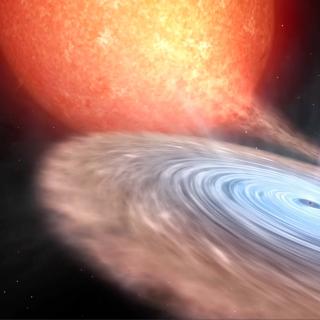Bhandari, S.; Keane, E. F.; Barr, E. D.; Jameson, A.; Petroff, E.; Johnston, S.; Bailes, M.; Bhat, N. D. R.; Burgay, M.; Burke-Spolaor, S.; Caleb, M.; Eatough, R. P.; Flynn, C.; Green, J. A.; Jankowski, F.; Kramer, M.; Krishnan, V. Venkatraman; Morello, V.; Possenti, A.; Stappers, B.; Tiburzi, C.; van Straten, W.; Andreoni, I.; Butterley, T.; Chandra, P.; Cooke, J.; Corongiu, A.; Coward, D. M.; Dhillon, V. S.; Dodson, R.; Hardy, L. K.; Howell, E. J.; Jaroenjittichai, P.; Klotz, A.; Littlefair, S. P.; Marsh, T. R.; Mickaliger, M.; Muxlow, T.; Perrodin, D.; Pritchard, T.; Sawangwit, U.; Terai, T.; Tominaga, N.; Torne, P.; Totani, T.; Trois, A.; Turpin, D.; Niino, Y.; Wilson, R. W.; Albert, A.; André, M.; Anghinolfi, M.; Anton, G.; Ardid, M.; Aubert, J.-J.; Avgitas, T.; Baret, B.; Barrios-Martí, J.; Basa, S.; Belhorma, B.; Bertin, V.; Biagi, S.; Bormuth, R.; Bourret, S.; Bouwhuis, M. C.; Brânzaş, H.; Bruijn, R.; Brunner, J.; Busto, J.; Capone, A.; Caramete, L.; Carr, J.; Celli, S.; Moursli, R. Cherkaoui El; Chiarusi, T.; Circella, M.; Coelho, J. A. B.; Coleiro, A.; Coniglione, R.; Costantini, H.; Coyle, P.; Creusot, A.; Díaz, A. F.; Deschamps, A.; De Bonis, G.; Distefano, C.; Palma, I. Di; Domi, A.; Donzaud, C.; Dornic, D.; Drouhin, D.; Eberl, T.; Bojaddaini, I. El; Khayati, N. El; Elsässer, D.; Enzenhöfer, A.; Ettahiri, A.; Fassi, F.; Felis, I.; Fusco, L. A. et al.
Bibliographical reference
Monthly Notices of the Royal Astronomical Society, Volume 475, Issue 2, p.1427-1446
Advertised on:
4
2018
Citations
183
Refereed citations
165
Description
We report the discovery of four Fast Radio Bursts (FRBs) in the ongoing
SUrvey for Pulsars and Extragalactic Radio Bursts at the Parkes Radio
Telescope: FRBs 150610, 151206, 151230 and 160102. Our real-time
discoveries have enabled us to conduct extensive, rapid multimessenger
follow-up at 12 major facilities sensitive to radio, optical, X-ray,
gamma-ray photons and neutrinos on time-scales ranging from an hour to a
few months post-burst. No counterparts to the FRBs were found and we
provide upper limits on afterglow luminosities. None of the FRBs were
seen to repeat. Formal fits to all FRBs show hints of scattering while
their intrinsic widths are unresolved in time. FRB 151206 is at low
Galactic latitude, FRB 151230 shows a sharp spectral cut-off, and FRB
160102 has the highest dispersion measure (DM = 2596.1 ± 0.3 pc
cm-3) detected to date. Three of the FRBs have high
dispersion measures (DM > 1500 pc cm-3), favouring a
scenario where the DM is dominated by contributions from the
intergalactic medium. The slope of the Parkes FRB source counts
distribution with fluences >2 Jy ms is α =-2.2^{+0.6}_{-1.2}
and still consistent with a Euclidean distribution (α = -3/2). We
also find that the all-sky rate is 1.7^{+1.5}_{-0.9}×
10^3FRBs/(4π sr)/day above {˜ }2{ }{Jy}{ }{ms} and there is
currently no strong evidence for a latitude-dependent FRB sky rate.
Related projects

Black holes, neutron stars, white dwarfs and their local environment
Accreting black-holes and neutron stars in X-ray binaries provide an ideal laboratory for exploring the physics of compact objects, yielding not only confirmation of the existence of stellar mass black holes via dynamical mass measurements, but also the best opportunity for probing high-gravity environments and the physics of accretion; the most
Montserrat
Armas Padilla